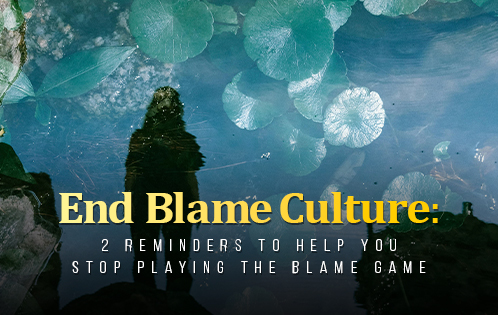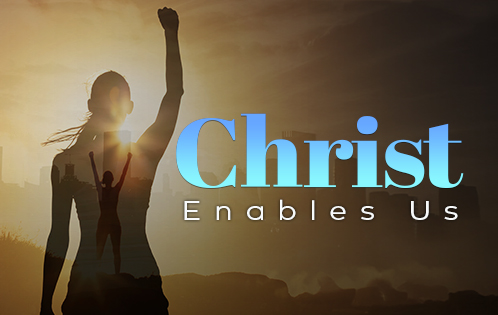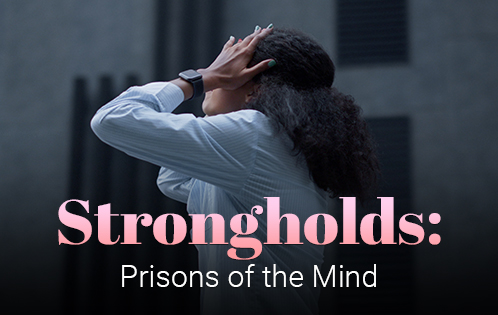Preventative care is a form of  treatment that comes before you get sick to avoid getting sick at all. This can be applied to our spiritual and emotional lives! Refuse to play the blame game and avoid the “sickness” that comes along with faulting others.
treatment that comes before you get sick to avoid getting sick at all. This can be applied to our spiritual and emotional lives! Refuse to play the blame game and avoid the “sickness” that comes along with faulting others.
Casting blame on other people can be a sign you’ve made them an idol in your life. An idol is defined as “an object of extreme devotion” and “a false god.” People and situations can become idols if you attribute the cause of your situations and feelings to them. Of course, we do not live in a victimless world. But unfortunately, to find comfort in blame is to surrender your own control and the very possible future of overcoming.
After you identify these idols, you are on your way to discarding the past and making room for something new to grow. Here are two reminders for you to consider the next time you want to blame someone else.
- You have control over your response.
The root of responsibility is response. We give away our power to live in victory, health, and success when we allow others to determine how we respond. You cannot control everything that others do to you, but don’t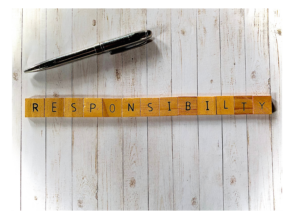 forget that you can always control your response. Simply controlling your response is powerful, because it enables you to go a step further and control the aftermath.
forget that you can always control your response. Simply controlling your response is powerful, because it enables you to go a step further and control the aftermath.
No one can keep you in your current situation except you. When we feel someone has created an undesirable situation for us, it is tempting to imagine them as a villain, a jailer who has trapped us somewhere we don’t want to be and where we feel we don’t deserve to be. However, to be victorious, we must begin to accept that our prison can be self-made.
Don’t be defined as a victim, but as a victor. You get to choose. You have choices. You have the agency to choose not to be strained, stranded, or contained. People may have had something to do with how you got in a  situation, but only you can decide whether you stay. The victim mentality ends when you take responsibility for your attitude and your direction in life.
situation, but only you can decide whether you stay. The victim mentality ends when you take responsibility for your attitude and your direction in life.
How do you respond to a wrong done to you? You can wallow in it and lash out; you also have the freedom to take advantage of the opportunity to grow, mature, and develop. It requires growth to take responsibility, look in the mirror, and own it.
- You are not alone.
Full responsibility doesn’t mean you’re in it alone. When we blame, we feel helpless. However, you’re not helpless; you have a helper. When you receive Jesus as Lord of your life, you have that helper on the inside of you. The circumstance, what someone did, is an opportunity for a divine intervention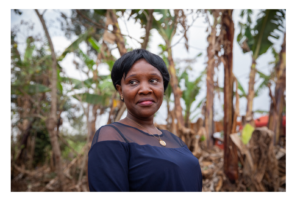 to happen in your life. What seemed like an attempt to sabotage you can become what causes your promotion. A setback can turn into a new beginning, and distrust can shift to wisdom.
to happen in your life. What seemed like an attempt to sabotage you can become what causes your promotion. A setback can turn into a new beginning, and distrust can shift to wisdom.
Getting assistance does not mean you’re throwing in the towel. Admitting a desire for help is not admitting failure. When you remember you are not alone, you won’t want to look at the situation or look at other people. Your help comes from a perfect place. This defeats the desire for an idol to blame, because you are only aware of the true God that can flip your hurt into pure joy.
Conclusion
I understand that there is comfort found in assigning blame to someone or something else, but doing this puts us at the mercy of a false god. This has consequences, like remaining stuck in an area of bondage! Take responsibility for your response! And don’t worry: when you cast away your idol, you won’t be alone as you navigate the situation. Your help comes from a divine plane.
End blame culture today and unlock a new freedom!


